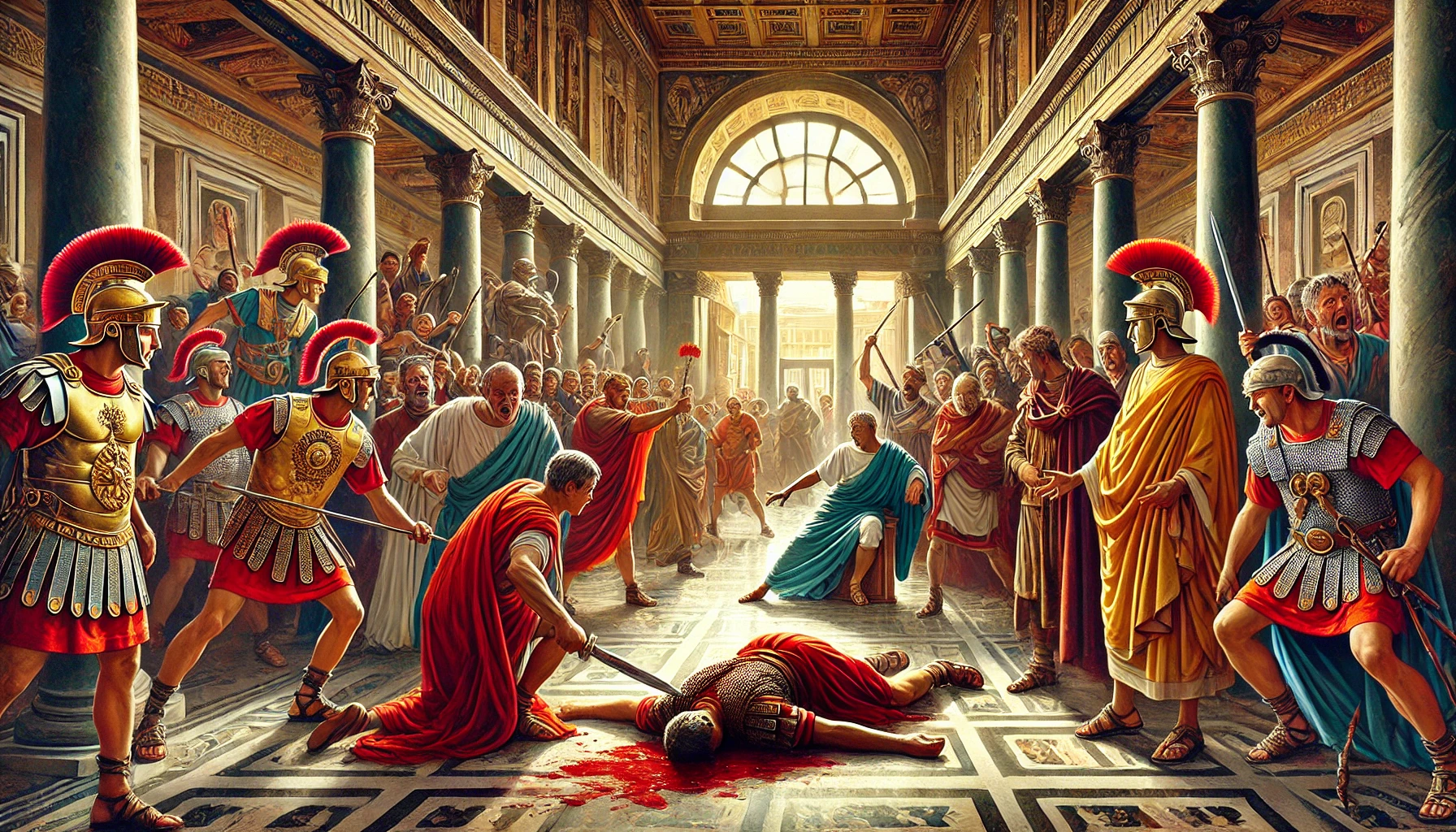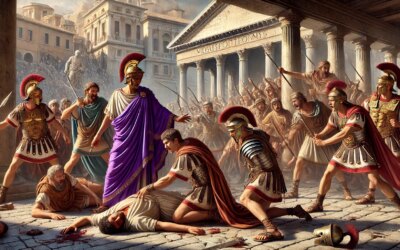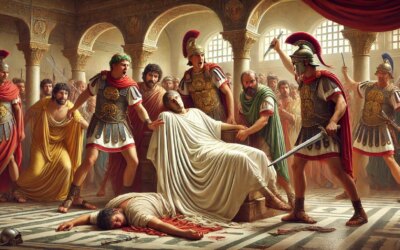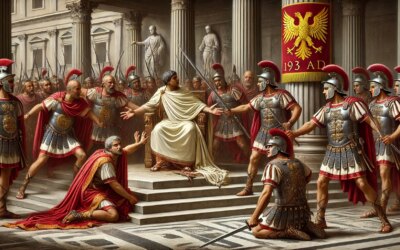Caligula’s Reign: From Promise to Tyranny
When Gaius Julius Caesar Augustus Germanicus—better known as Caligula—became emperor in 37 AD, Rome initially welcomed him as a savior. He was the beloved son of the heroic Germanicus, and his early reign promised reforms and generosity. However, within a short time, his rule descended into chaos, marked by extreme cruelty, paranoia, and erratic behavior that alarmed Rome’s elite.
Caligula declared himself a living god, humiliated the Senate, and squandered Rome’s wealth on lavish spectacles. He even appointed his horse, Incitatus, as a priest and allegedly considered making it a consul. His tyranny soon turned lethal, as he executed rivals and turned the Praetorian Guard—Rome’s imperial bodyguards—into personal enforcers.
The Conspiracy Against Caligula
By 41 AD, resentment against Caligula had reached its peak. Senators, equestrians, and even his closest guards feared his erratic rule. The Praetorian Prefect, Cassius Chaerea, took the lead in plotting his assassination. Humiliated by Caligula’s frequent insults—often mocking his masculinity—Chaerea saw the emperor’s death as the only solution.
The conspiracy gained traction, with other discontented senators and officers joining the plan. The challenge was finding the right moment to strike, as Caligula’s paranoia had made him more cautious in recent months.
The Assassination: Death in the Palace
On January 24, 41 AD, the conspirators made their move. Caligula was leaving a theatrical performance at the Palatine Games when Chaerea and his men ambushed him in a palace corridor. Chaerea struck first, slicing the emperor’s neck, followed by repeated stab wounds from the other assassins. Reports suggest Caligula attempted to flee, but the attack was too swift. By the time the conspirators finished, the once-feared emperor lay lifeless in a pool of blood.
In the chaos, Caligula’s wife and young daughter were also executed, ensuring that no direct heir could claim the throne.
The Aftermath: Power Struggles and a New Emperor
Rome erupted in confusion. The Senate, relieved at Caligula’s death, attempted to restore the Republic, but the Praetorian Guard had other plans. They discovered Caligula’s uncle, Claudius, hiding in the palace and declared him emperor. Claudius, considered a weak and unlikely ruler, ultimately proved to be a shrewd and capable leader, stabilizing Rome after Caligula’s disastrous reign.
Caligula’s Legacy: Madness or Political Myth?
Caligula’s reign remains one of the most infamous in Roman history. While some ancient sources—especially Suetonius and Cassius Dio—portray him as a mad tyrant, modern historians debate whether he was truly insane or simply an emperor who pushed autocratic rule too far. Regardless of the truth, his assassination marked a turning point, proving that even emperors were not beyond the reach of Rome’s political machinations.
The fall of Caligula serves as a reminder of how absolute power, unchecked by reason or restraint, can lead to destruction—both for the ruler and the empire he governs.






